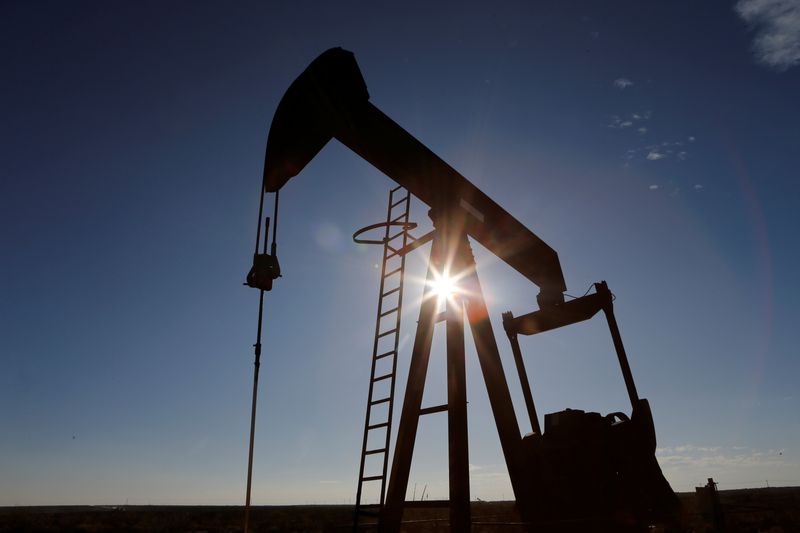
By Georgina McCartney
(Reuters) – Oil was steady in early trade on Tuesday as investors weighed supply disruptions from Tropical Storm Francine and the potential for further output cuts against persistently weak Chinese demand.
Brent crude futures rose 16 cents, or 0.22%, to $72.00 a barrel by 0004 GMT. U.S. West Texas Intermediate crude futures rose 12 cents, or 0.17%, to $68.83 a barrel.
Both benchmarks gained around 1% at Monday’s settlement.
The U.S. Coast Guard ordered the closure of all operations at Brownsville and other small Texas ports on Monday evening, as Tropical Storm Francine barrelled across the Gulf.
The port of Corpus Christi remained open but with restrictions.
The tropical storm is forecast to strengthen significantly over the next couple of days, and was expected to become a hurricane on Monday night or Tuesday morning, according to the National Hurricane Center (NHC).
Exxon Mobil (NYSE:XOM) said it shut-in output at its Hoover offshore production platform, while Shell (LON:SHEL) paused drilling operations at two platforms. Chevron (NYSE:CVX) also began shutting in oil and gas output, at two of its offshore production platforms.
“At least 125,000 barrels per day (bpd) of oil capacity is at risk of being disrupted,” ANZ analysts said in a note, citing data from the NHC.
Elsewhere, global commodity traders Gunvor and Trafigura anticipate oil prices may range between $60 and $70 per barrel on wakened Chinese demand and persistent global oversupply, executives told Asia Pacific Petroleum Conference (APPEC) attendees on Monday.
China’s shift towards lower-carbon fuels and a sluggish economy are dampening oil demand growth in the world’s largest crude importer, APPEC conference speakers said.

China’s annual demand growth has slowed from around 500,000-600,000 bpd in the five years before the COVID-19 pandemic to 200,000 bpd now, said Daan Struyven, head of oil research at Goldman Sachs.
Refining margins in Asia have slipped to their lowest seasonal levels since 2020.
This post is originally published on INVESTING.


